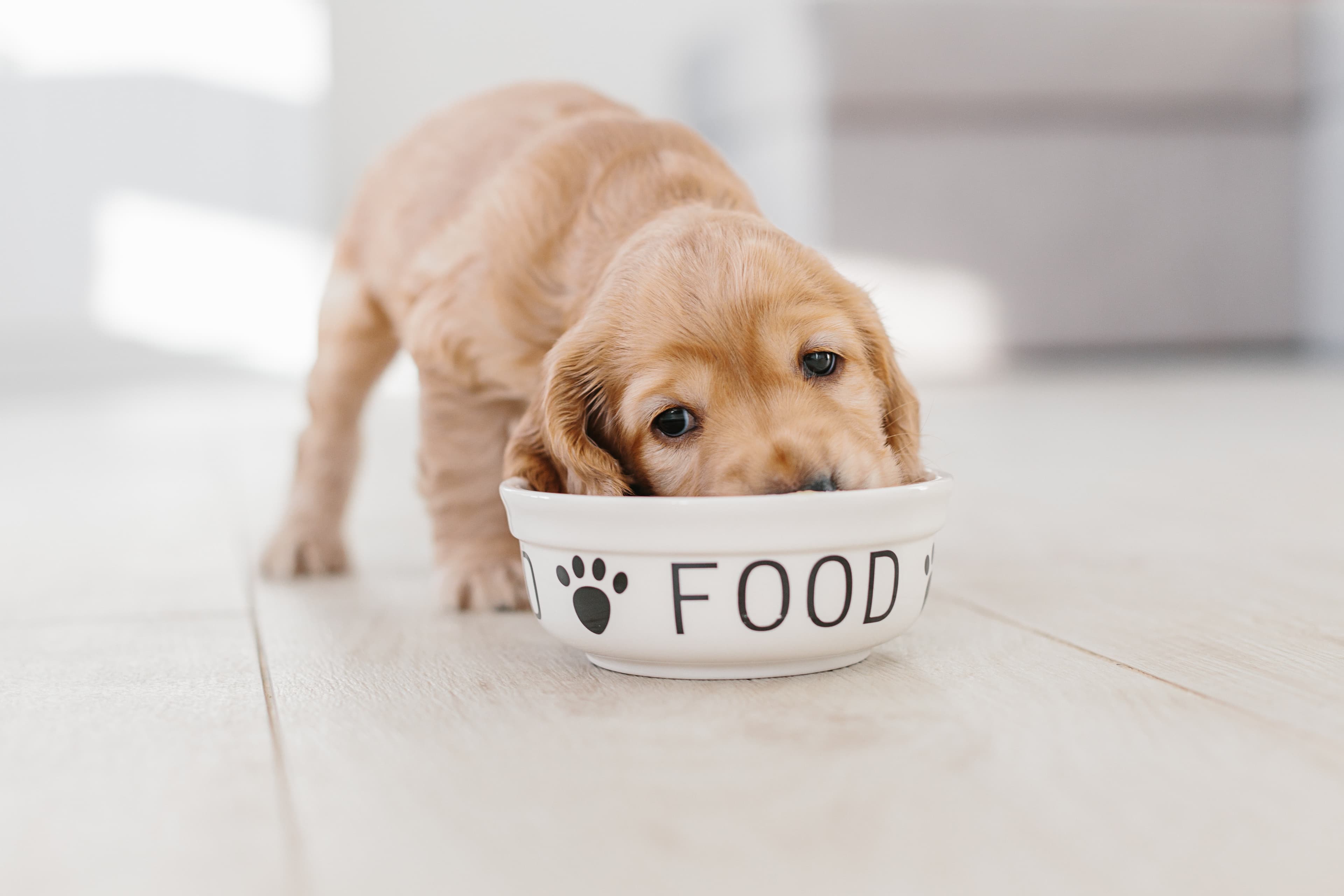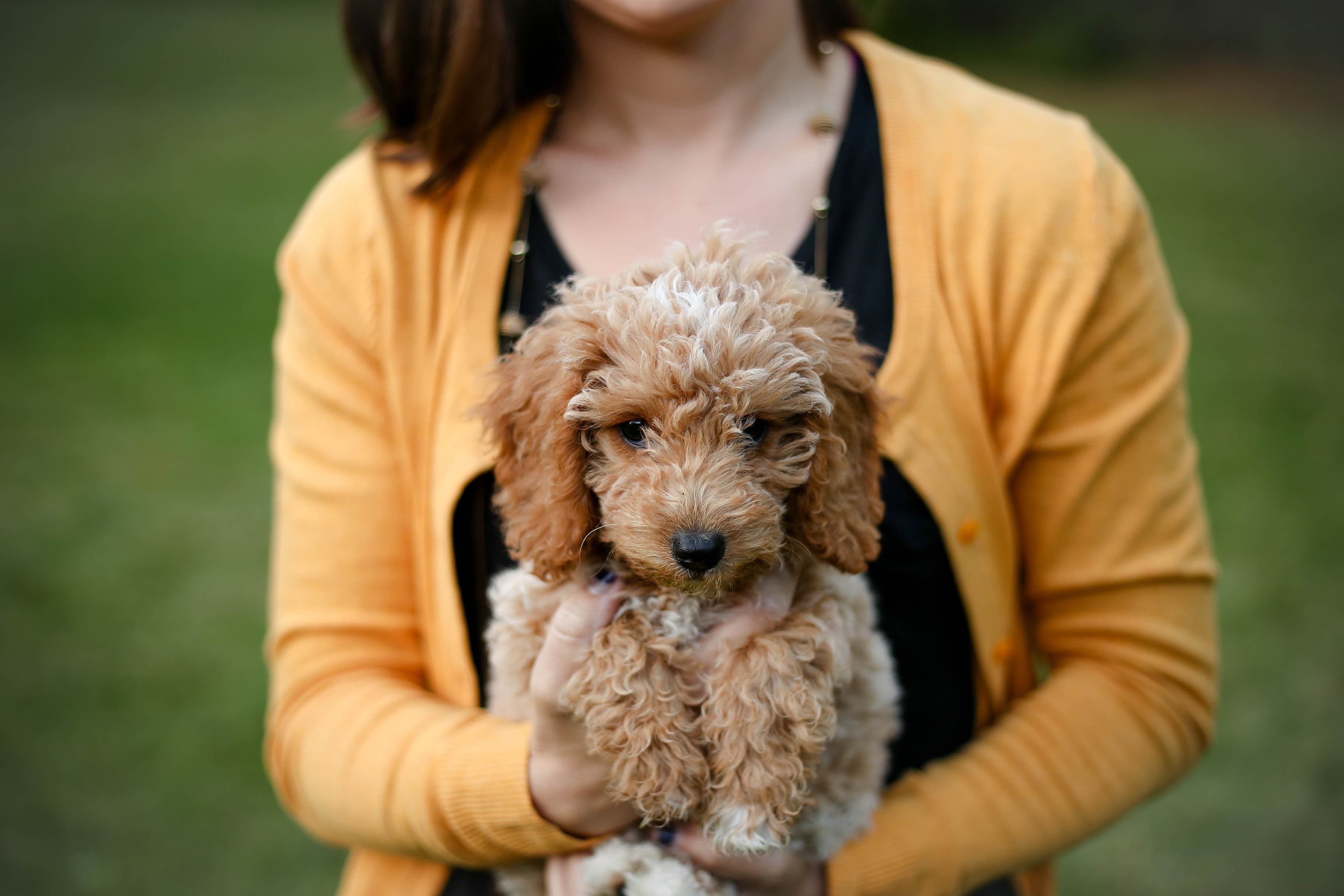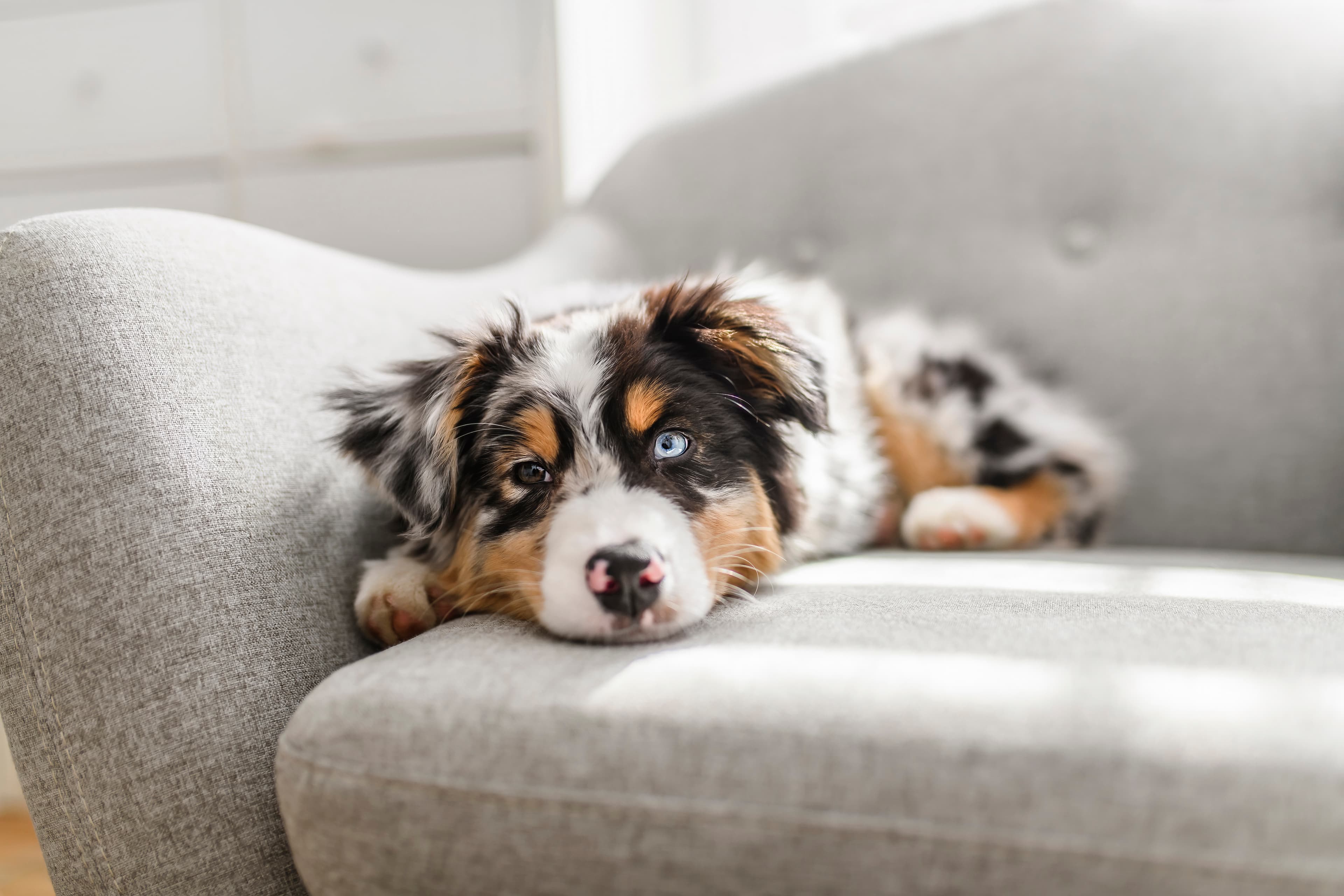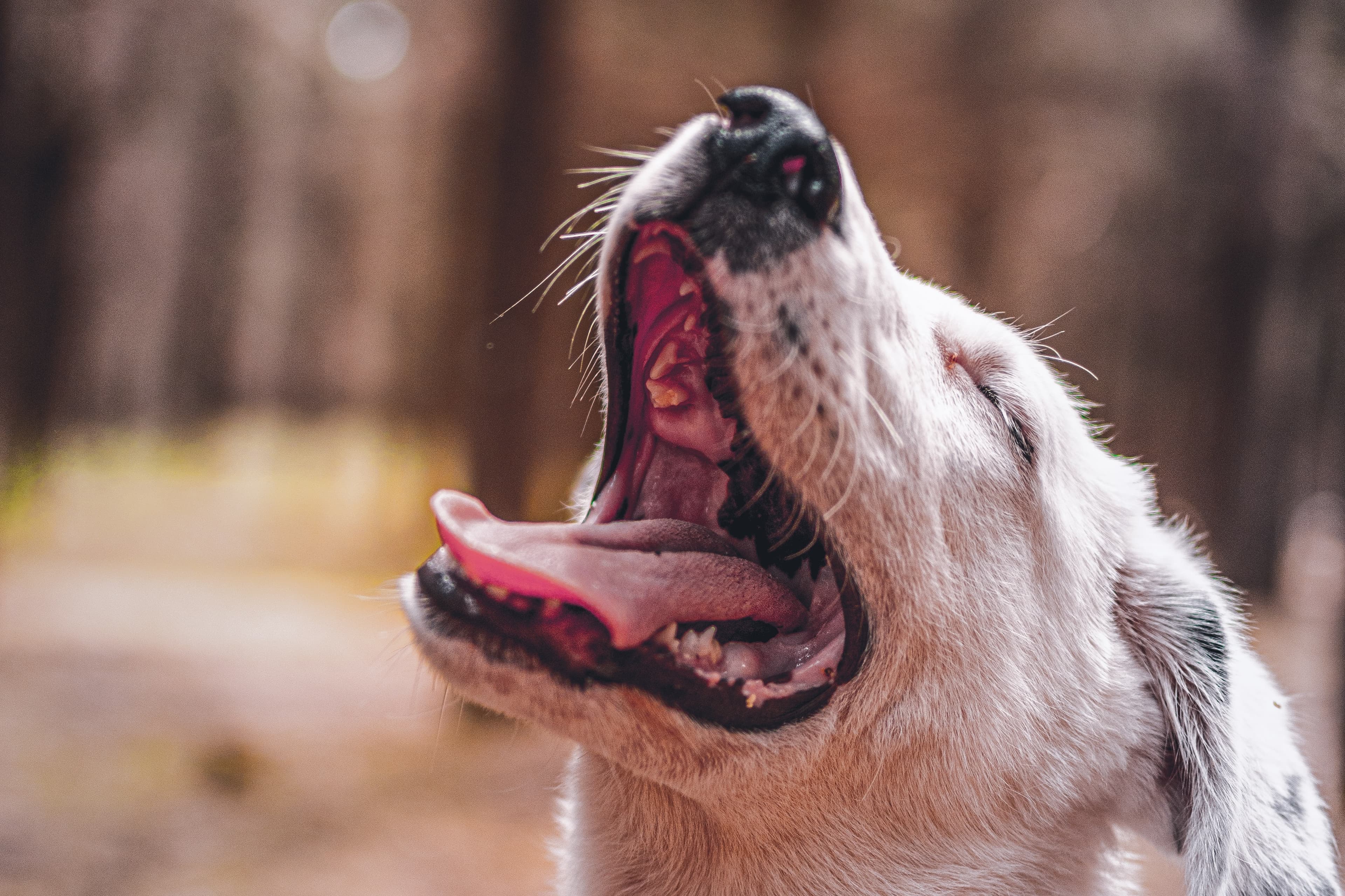Food for your puppy
When it's time to bring home your new puppy, many questions arise, and one of these may be about what the puppy should eat. It is not always easy to navigate the jungle of food, and especially puppy food. We'll help you along the way.
What should my puppy eat?
The simplest answer to this question is to let the dog eat the same food it was given at home by the breeder. Ask the breeder what food the puppy is used to and continue with that food, at least initially. Moving to a new family and environment is already a big adjustment for the puppy, so don't start by changing its food immediately. Often the breeder will send some food that the puppy is used to.
Changing food
If, after the puppy has been with you for a while, you want to change to a different food, that is of course fine. However, a change of food should be done slowly over several days. An exception to this is if your puppy suffers from vomiting or diarrhoea and needs to be fed a special diet. If this is the case, you can make the switch between food and a special diet at once. However, you need to be careful when switching back from the bland diet to the original food. Then the regular food needs to be phased in and the skimmed food phased out over a few days.
When changing feed, you need to make sure that the feed you want to change to is suitable for puppies. This is very important as a puppy food is formulated for a growing individual and its needs. It may also be a good idea to talk to someone who knows a bit more about food, such as a shop assistant in a dog shop, to find out what type of food your particular size of dog needs.
How much should my puppy eat?
How much your puppy should eat is, of course, individual and depends partly on its size and specific needs. You should use the recommendation given on the food packaging as a guideline. However, you should also pay attention to how your puppy feels about the food and whether it is maintaining the correct weight.
Overweight puppies can have problems as adults, as it is difficult to remove the excess weight. Puppies should ideally be thin and not carry extra pounds, both for the impact on bone structure and how they learn to move. If the recommended dose makes your puppy overweight, immediately reduce the intake and review what your puppy is eating in addition to food, such as chews and treats.
How long does your puppy need to eat puppy food?
It is often said that puppies should be on puppy food until they are 1 year old. But this is a bit of a simplistic view of how long the puppy should be on a puppy food. In fact, the puppy only needs to eat food adapted to growing puppies as long as it is growing. The switch from puppy food to junior or adult food should therefore only be made when the dog has reached its full potential "adult weight", and when this is differs greatly between individuals, where breed and size come into play. Consult a vet if you are unsure when your puppy/young dog should be switched to adult food.
Can I give my puppy dog treats?
Of course the puppy can have some treats and especially when it exhibits behaviours that you want to see again and reward. Remember that treats should be given as part of your puppy's daily energy intake and often you can use your puppy's food as a training treat.
Feel free to pour your puppy's daily food intake into a bowl and also use it for training sessions, putting in activation toys and spontaneously rewarding behaviours you like.






